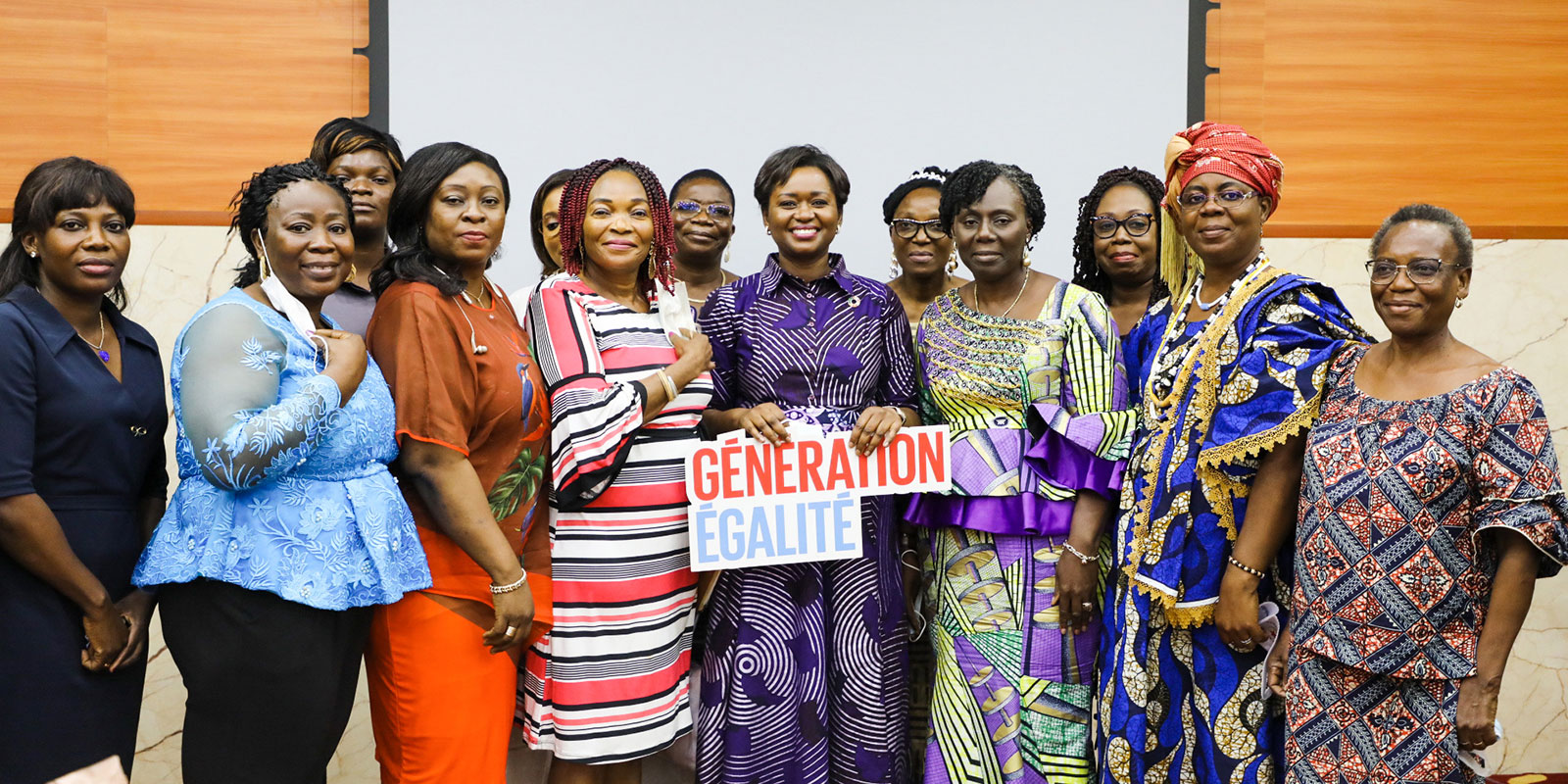International Women’s Day is an opportunity for women across the world and on the continent to take stock of the state of gender-based issues and the achievements and opportunities. The theme for this year, “Gender equality today for a sustainable tomorrow”, speaks to the contribution that women and girls make to create a sustainable future for everyone.
The role of women in mitigating climate change and effectively taking part in conflict prevention can only be enhanced by their consistent access to information through ICT.
Tweet
The African Union (AU) has continuously reinforced its efforts to put an end to violence against women in different spheres. In addition to the unequivocal prohibition of violence against women in the Protocol to the African Charter on Human and Peoples’ Rights on the Rights of Women in Africa (Maputo Protocol), different initiatives continue to be taken to combat this scourge. Among others, Resolution 283 of the Commission on the Situation of Women and Children in Armed Conflict (ACHPR/Res 283 (LV) 2014) and the Guidelines On Combating Sexual Violence and its Consequences in Africa provide clear measures that need to be implemented to put an end to sexual and gender-based violence.
Despite these and other measures, violence against women in armed conflict continues. Scores of women are subjected to rape, sexual slavery, and mutilation, among other violations, to punish, intimidate or control them during war. This has deeply horrific consequences for individuals, family units, and communities. And yet, according to the Office of the High Commissioner for Human Rights, sexual violence during armed conflict is grossly under-reported. There is a stigma associated with sexual crimes against an individual, and in African tradition, discussion of issues of a sexual nature remains largely taboo. This means that there is limited accountability for the perpetrators. There are also inadequate laws to deal with the psychological violence that women suffer as a result of violence during armed conflict. This is especially alarming as it has now become apparent that the present challenges brought on by climate change are contributing to conflict as states fight over fast-dwindling natural resources. The converse is also true where women displaced by conflict are battling food insecurity in new lands affected by climate change, or they find themselves displaced due to climate change.
The role of women in mitigating climate change and effectively taking part in conflict prevention can only be enhanced by their consistent access to information through Information Communications Technology (ICT). Their access to information positively impacts development on the continent and helps end the cycle of poverty. This is why in the AU’s Agenda 2063, there is an emphasis on the availability of adequate ICT infrastructures and internet access for Africans as a right. However, the digital space is proving to be unsafe for many women, as the patriarchal hegemony that they battle offline continues online. According to UN Women, a staggering 73% of women who access the Internet have suffered some form of violence online. Violence against women is metered out by email, WhatsApp, Facebook, Twitter, Tinder, and other social media platforms. Sharing intimate pictures for the purposes of shaming or in retaliation for the rejection of male advances is common. In some instances, women have lost financially and become victims of offline assault that was initiated online, for example, through dating sites. All of this has the effect of making women feel unsafe online and discouraging the use of otherwise valuable ICT platforms by women and girls.
“Gender equality for today for a sustainable tomorrow”, underlines the importance of ensuring ultimate gender equality to allow women to take up their critical role in creating a sustainable future.
Tweet
However, all is not lost, and we continue to press on with efforts to ensure that violence against women, whether in conflict, in times of peace or online, is eradicated. In doing so, we need to break the cycle of stigmatisation and the culture of silence against sexual and gender-based violence to identify the survivors and ensure their adequate care. This is a process that requires constant sensitisation with communities as well as offering more robust protection mechanisms for survivors to encourage opening up. It is important to review legislative frameworks to weed out discriminatory laws that exacerbate violence against women to afford them better protection. As new technologies arise every day, we need to educate ourselves continually on how these can be used by women to empower themselves and at the same time ensure safety measures for women to access them safely. An informed woman is an empowered woman. Therefore, the implementation of all existing laws on cyber-security and the enactment of more robust ones should remain on the agenda of every African state.
The theme for this year, “Gender equality today for a sustainable tomorrow”, underlines the importance of ensuring ultimate gender equality to allow women to take up their critical role in creating a sustainable future. Continuous efforts to give women an opportunity to lend their voice and expertise to mitigating climate change is a step towards the continued livelihood of our planet. These efforts should begin by levelling the playing field for women, ensuring gender equality by eradicating violence against women, and creating platforms for them to take up the mantle towards a sustainable future.
Commissioner Janet Ramatoulie Sallah-Njie is a Special Rapporteur on the Rights of Women in Africa at the African Commission on Human and Peoples’ Rights.


